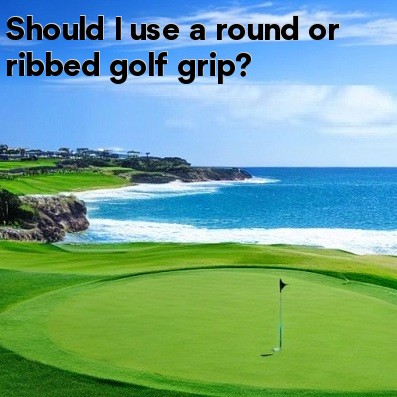
Should I use a round or ribbed golf grip?
When it comes to playing golf, one of the most important decisions you will have to make is choosing the right type of grip for your clubs. The grip is the only point of contact between your hands and the club, so it plays a crucial role in your swing and ultimately determines your level of control and comfort on the course.
There are various types of golf grips available in the market, but the two most common options are the round grip and the ribbed grip. Each has its own advantages and disadvantages, so it is essential to understand their differences before making a decision.
- Round Grip: As the name suggests, a round grip has a smooth and continuous surface without any additional texture or ribbing. Many golfers prefer this type of grip because it allows for more hand manipulation and flexibility during the swing. The absence of any ridges or bumps allows the hands to rotate more freely, which can be advantageous for golfers who prefer a lot of wrist action or those with smaller hands. The round grip is also known for providing a consistent and natural feel.
- Ribbed Grip: Unlike the round grip, a ribbed grip has visible ridges or “ribs” running along the length of the grip. These ribs are strategically placed to enhance grip stability and promote a more consistent hand placement. The ribs provide a subtle reminder for where to place your hands in relation to the clubface, which can help improve your shot accuracy. The ribbed grip is often favored by golfers who struggle with hand placement and tend to have inconsistent swings.
Ultimately, the decision between a round grip and a ribbed grip comes down to personal preference and what feels more comfortable and natural to you. Some golfers find that the round grip allows for better hand feel and control, while others appreciate the guidance and consistency provided by the ribbed grip. It is a matter of trial and error to determine which type of grip suits your playing style.
It is worth noting that grip selection isn't solely dependent on personal preference. Factors such as weather conditions, hand size, and even the type of swing can also play a role in determining the best grip for you. Therefore, it is recommended to try out different grips before settling on one.
Additionally, it is crucial to maintain the grip's condition to ensure its effectiveness. Over time, golf grips can become worn and lose their tackiness, which compromises your grip on the club. Regular maintenance and replacement of worn-out grips is essential to maintain optimal performance.
In conclusion, whether you choose a round grip or a ribbed grip depends on your personal playing style, hand size, and preference. Both types have their positives, so it may be worth experimenting with different grips to determine which one enhances your control and comfort on the course.





